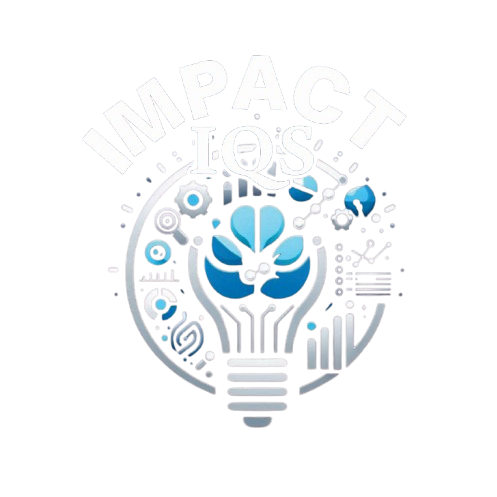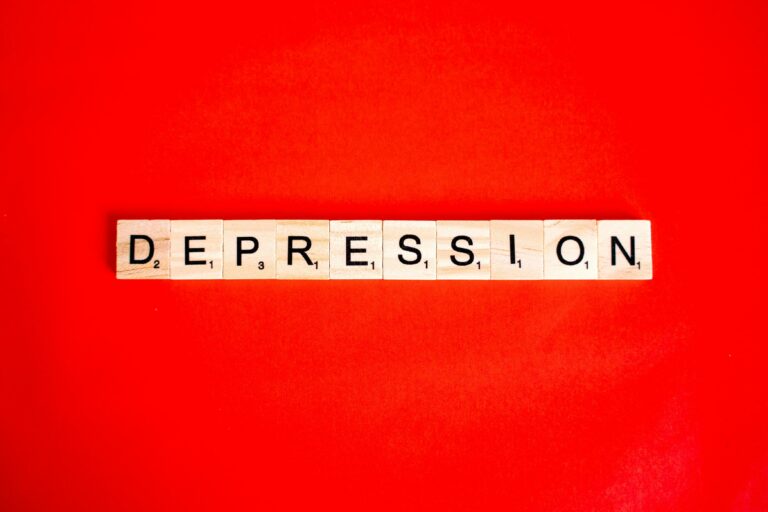Communication skill is the ability to convey ideas, thoughts, and emotions effectively to others. It is a fundamental aspect of human interaction, playing a pivotal role in personal and professional success.
Whether in casual conversations or high-stakes business negotiations, mastering communication skills can significantly enhance your relationships and achievements.
In a world driven by connection, having strong communication skills bridges gaps, resolves conflicts, and fosters understanding.
From the way we articulate our thoughts verbally to the subtle non-verbal cues we express, communication defines how we connect with others. With its wide-ranging influence, understanding and honing this skill is essential for thriving in modern society.
This article delves into the essence of communication skill by exploring its types and identifying the key components that make communication effective. Let’s uncover how this vital skill can transform interactions into meaningful connections.
Types of Communication

Effective communication encompasses various forms, each suited to specific situations. Understanding the types of communication is the first step toward enhancing your overall communication skill.
1. Verbal Communication
Verbal communication involves spoken words to express ideas and share information. It is perhaps the most direct and immediate form of communication. Whether during a formal meeting, casual chat, or a public speech, the clarity and tone of your verbal delivery are crucial. Developing verbal communication skills requires practice, confidence, and a rich vocabulary.
2. Non-Verbal Communication
Non-verbal communication conveys messages without words, often through body language, facial expressions, and gestures. A confident stance, steady eye contact, and a friendly smile can speak volumes. Mastering non-verbal communication skills is essential because these cues often reveal more about emotions and intentions than words do.
3. Written Communication
Written communication involves conveying messages through text, such as emails, reports, or social media posts. This type of communication demands precision and clarity to ensure the intended message is understood. Improving written communication skill involves practicing proper grammar, structuring messages logically, and tailoring content for the intended audience.
4. Visual Communication
Visual communication uses images, videos, charts, and graphs to complement or replace verbal and written communication. It is particularly effective in presentations or when simplifying complex information. Strong visual communication skill ensures that your visual aids are clear, engaging, and aligned with your message.
By combining these types of communication skills effectively, you can adapt to different scenarios and engage with diverse audiences. Each form plays a unique role in ensuring your message is received and understood as intended.
Read More
How To Get Over Someone
How To Say No In A Smart Way
Key Components of Effective Communication

To master communication skills, one must understand and implement its essential components. These elements form the foundation for meaningful and impactful interactions.
1. Active Listening
Active listening is the cornerstone of effective communication. It involves fully focusing on the speaker, understanding their message, and responding thoughtfully. Strong communication skills are not just about expressing your thoughts but also about genuinely engaging with others. Techniques like paraphrasing and asking clarifying questions enhance active listening.
2. Clarity and Conciseness
Clear and concise messages prevent misunderstandings. Overloading your audience with unnecessary details dilutes the impact of your message. By focusing on clarity and brevity, you ensure that your communication skill effectively conveys the intended message without confusion.
3. Empathy and Understanding
Empathy allows you to connect with others on a deeper level. It involves understanding their perspectives, emotions, and needs. Communication skills rooted in empathy fosters trust and builds stronger relationships. When you show understanding, your audience feels valued and heard.
4. Confidence in Delivery
Confidence is key to persuasive and impactful communication. Whether you’re giving a presentation or having a one-on-one conversation, a confident demeanor instills trust in your message. Developing this aspect of communication skill involves practicing your delivery, maintaining good posture, and managing nervousness.
5. Feedback and Adaptability
Effective communicators are open to feedback and willing to adapt. Feedback helps you identify strengths and areas for improvement, allowing you to refine your communication skill. Being adaptable also means tailoring your communication style to suit your audience or context, ensuring your message resonates.
Common Barriers to Communication
Despite its importance, communication skills can be hindered by various barriers that disrupt the flow of information. Understanding these barriers is essential to overcoming them and ensuring effective communication.
1. Language Differences
Language barriers are one of the most common obstacles. Misunderstandings often arise when individuals speak different languages or have varying levels of proficiency. Enhancing communication skill in such situations requires the use of simple language, visual aids, or even translation tools.
2. Emotional Barriers
Strong emotions, such as anger, frustration, or fear, can prevent clear communication. Emotional barriers often cause individuals to misinterpret messages or respond defensively. Developing emotional intelligence can improve communication skills by helping individuals manage emotions during interactions.
3. Distractions and Lack of Attention
In today’s fast-paced world, distractions like smartphones or multitasking often hinder active listening. A lack of attention can result in missed details or miscommunication. To strengthen your communication skill, it’s crucial to focus entirely on the interaction at hand.
4. Cultural Misunderstandings
Cultural differences can create misunderstandings in communication. Gestures, phrases, or traditions that are acceptable in one culture might be offensive in another. Effective communication skill involves cultural sensitivity and awareness to navigate such differences successfully.
How to Improve Communication Skills

Improving communication skills is a lifelong process that involves dedication and practice. Here are practical steps to enhance your ability to communicate effectively in various settings.
1. Practice Active Listening
To be a great communicator, you must first be an attentive listener. Active listening involves focusing entirely on the speaker, maintaining eye contact, and responding thoughtfully. This practice strengthens your communication skill by making others feel heard and valued.
2. Expand Your Vocabulary
A rich vocabulary allows you to express your thoughts with clarity and precision. Reading widely, learning new words, and practicing their usage in conversations are excellent ways to develop this aspect of communication skill.
3. Hone Your Non-Verbal Communication
Non-verbal cues like body language, gestures, and facial expressions significantly influence how your message is perceived. Enhancing non-verbal communication skills involves maintaining open and confident body language, using appropriate gestures, and paying attention to the non-verbal cues of others.
4. Seek Feedback
Feedback is a valuable tool for improving communication skills. Ask for constructive feedback from peers, colleagues, or mentors to identify areas for improvement. This will help you refine your approach and build confidence in your abilities.
5. Participate in Workshops or Training
Attending communication workshops or enrolling in courses can help you develop advanced communication skills. These sessions often focus on public speaking, interpersonal communication, and handling challenging conversations effectively.
6. Adapt to Your Audience
Tailoring your communication style to suit your audience is a vital aspect of communication skill. Whether you’re addressing a formal meeting or chatting with friends, understanding your audience helps you choose the right tone, language, and level of formality.
The Role of Communication Skills in Various Contexts
Communication skill is invaluable in every aspect of life, from personal relationships to professional settings. Here’s how this vital skill influences different domains:
1. Professional Settings
In the workplace, communication skills are essential for teamwork, leadership, and client relations. Whether you’re presenting ideas in a meeting, collaborating with colleagues, or negotiating with clients, strong communication ensures clarity and alignment. For leaders, effective communication skills inspire and motivate teams, driving organizational success.
2. Personal Relationships
In personal relationships, communication skill fosters understanding, trust, and emotional intimacy. Open and honest communication allows individuals to express their needs, resolve conflicts, and strengthen bonds. A lack of communication often leads to misunderstandings and strained relationships.
3. Educational Environments
In education, communication skills enhance both teaching and learning. Students benefit from expressing ideas confidently, participating in discussions, and presenting their knowledge. Teachers, on the other hand, rely on strong communication to convey concepts effectively and engage with students.
4. Social Interactions
Socially, communication skills help you build and maintain connections. Whether networking at events or engaging in casual conversations, the ability to communicate clearly and authentically leaves a lasting impression.
Understanding the role of communication skill in these contexts highlights its importance as a tool for success and fulfillment in all areas of life.
Conclusion
Communication skill is a cornerstone of effective interaction, enabling individuals to connect, understand, and collaborate with others. By mastering active listening, clarity, empathy, and adaptability, you can transform your communication into a powerful tool for personal and professional growth.
While barriers like language differences or cultural misunderstandings may challenge your communication skill, addressing these obstacles with sensitivity and effort ensures more meaningful exchanges. Whether in the workplace, personal relationships, or educational settings, strong communication skills fosters trust, clarity, and connection.
Developing this vital skill requires continuous practice and dedication, but the rewards are well worth the effort. By investing in your communication skill, you open doors to better relationships, enhanced teamwork, and greater success in all aspects of life.






